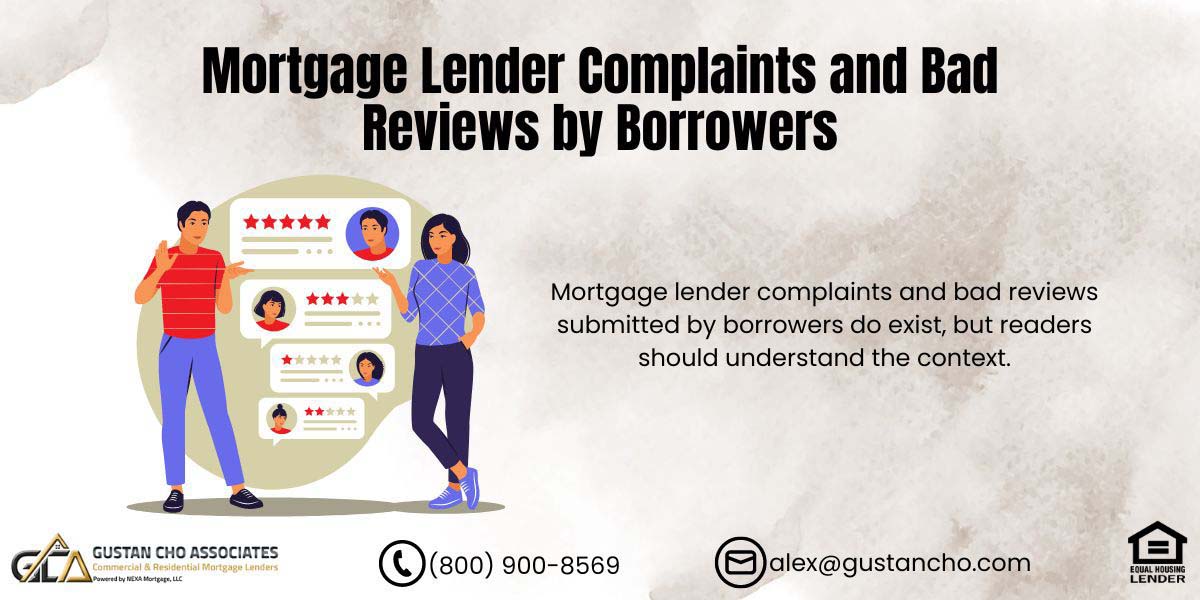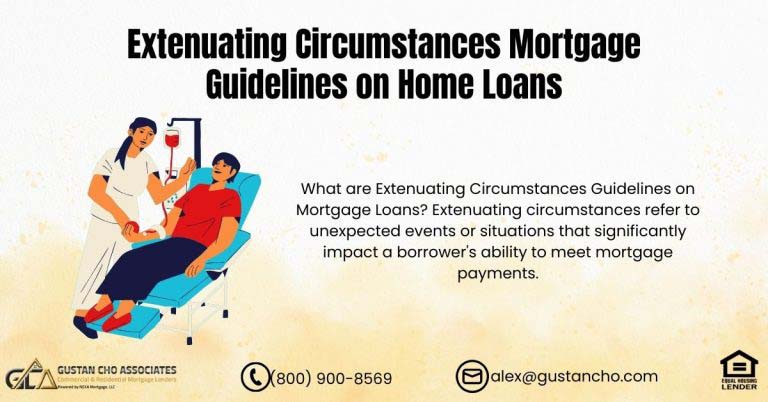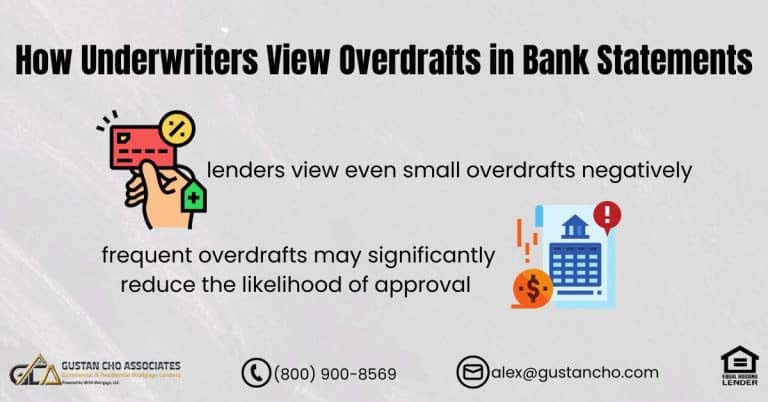It’s important to note that Mortgage Lender Complaints and Bad Reviews submitted by borrowers do exist, but readers should understand the context. Consumers must recognize that prominent national lenders, such as Chase Bank, Quicken Loans, and Guaranteed Rate, are major players in the mortgage industry and employ hundreds, if not thousands, of loan officers.
Although these lenders offer top-notch loan products, efficient operating systems, and prioritize customer service, issues may arise if loan officers fail to return client calls or provide poorly crafted pre-approval letters.
Such oversights can lead to devastating consequences, such as mortgage denials during the approval process due to inadequate diligence in qualifying applicants, impacting everyone involved in the transaction. Therefore, it’s crucial to approach negative feedback objectively and evaluate it in the context of the larger industry.
This article will discuss Mortgage Lender Complaints and Bad Reviews by Borrowers.
The Real Estate Professional Team
During a home purchase, various parties, including the buyer, seller, attorneys on both sides and others, may encounter issues due to the incompetence of a loan officer. It’s important to note that such problems, often reflected in mortgage lender complaints and bad reviews, are usually not the mortgage company’s fault but rather stem from individual loan officers’ errors.
An incompetent loan officer may fail to accurately calculate debt-to-income ratios or overlook crucial details such as the recorded foreclosure date, leading to problems meeting federal waiting period requirements.
The failure to properly qualify a borrower and issue a pre-approval is one of the primary causes of stress during the mortgage process or even a last-minute denial. Consequently, mortgage companies like Quicken Loans and Guaranteed Rate sometimes receive negative reviews and complaints across various online platforms.
Wondering If You Qualify for a Mortgage Loan? Let’s Find Out!
No overlays. Bad credit OK. Fast approvals. Start Your Free Mortgage Pre-Qualification Today
What is Lender Misconduct?
Mortgage lender complaints and bad reviews stem from lender misconduct, encompassing unethical or illegal behaviors breaching laws or industry norms. This misconduct encompasses predatory lending, discriminatory practices, fraud, unfair loan servicing, regulatory breaches, conflicts of interest, and lapses in record-keeping.
These actions detrimentally impact borrowers, investors, and the overall integrity of the lending system. Consequently, legal and regulatory authorities scrutinize such practices to safeguard consumers and uphold financial stability.
What is Mortgage Lender Negligence?
Complaints and negative reviews about mortgage lenders often stem from negligence, where the lender fails to meet its obligations to borrowers with reasonable care and diligence. This negligence can manifest in various ways, potentially violating laws, regulations, or industry standards. Some key examples of mortgage lender negligence encompass:
- Failure to Provide Accurate Information: Lenders must provide borrowers with accurate and complete information about loan terms, fees, interest rates, and other important details. Negligence can occur if a lender provides misleading or incorrect information, leading to financial harm for the borrower.
- Failure to Disclose Fees and Charges: Lenders must disclose all applicable fees and charges associated with the mortgage loan. Negligence can occur if a lender fails to provide clear and transparent information about fees, resulting in unexpected costs for the borrower.
- Predatory Lending Practices: Lenders must adhere to fair lending practices and avoid engaging in predatory behavior, such as steering borrowers into high-cost loans, charging excessive fees, or making loans with unfavorable terms the borrower cannot afford.
- Inadequate Underwriting and Due Diligence: Lenders are responsible for conducting comprehensive underwriting and due diligence to evaluate borrowers’ capacity to repay the loan. Negligence can occur if a lender approves a loan without properly verifying the borrower’s income, assets, or creditworthiness, leading to loan defaults and foreclosures.
- Failure to Escrow Funds Properly: If a lender is responsible for escrowing funds for taxes, insurance, or other purposes, negligence can occur if the lender fails to manage and disburse these funds properly, resulting in financial harm or legal consequences for the borrower.
- Unfair Loan Servicing Practices: Lenders must service loans fairly and responsibly, including accurately applying payments, managing escrow accounts, and communicating with borrowers about loan modifications or other options. Negligence can occur if a lender engages in unfair or deceptive loan servicing practices that harm the borrower.
Mortgage lender complaints and bad reviews can result in significant repercussions for borrowers, such as financial setbacks, credit impairment, and potential legal battles. Borrowers who feel they’ve suffered due to lender negligence should explore available legal avenues to pursue compensation or resolution for their grievances.
Properly Qualifying Debt-To-Income Ratios
There are many instances where loan officers did not take into account child support payments. Other instances, loan officers make mistates in qualifying borrowers where they did not negate the unreimbursed expenses from the gross income.
Random audits are conducted and if there are any violations of mortgage lending guidelines, the fines can be hundreds of thousands of dollars if not millions.
I hope this article helps when searching for a loan officer and lender. Some loan officers did not take into the account the spouse’s debts in a community property state. To make it worse, the incompetent loan officer issued a pre-approval on a manual underwrite file without verification of rent (manual underwrites require verification of rent)
Importance of Mortgage Pre-Approval
A sloppy pre-approval letter is the main reason for an 11th-hour mortgage loan denial by lenders. Now the borrower did the following due to trusting the loan officer’s pre-approval paid the home appraisal. Homebuyers hired movers. Buyers changed schools for their children to a school district they are moving to.
Many borrowers gave their landlord’s notice that they will move out after they have gotten a pre-approval and the landlord has a new tenant moving in.
Borrowers have notified the utility company to set up new service to their new home purchase. Then they get a mortgage loan denial by the mortgage underwriter because the loan officer did not qualify the applicant correctly in the first place. People do not have to be a rocket scientist to figure out that the borrower will be more than livid and will not just blame the loan officer, but the mortgage company will be the main blame.
What is Abusive Mortgage Practices?
Abusive mortgage practices are unfair or deceptive actions by lenders or servicers towards borrowers, violating consumer protection laws. Examples include predatory lending, steering borrowers into unfavorable loans, loan flipping, undisclosed terms, unfair loan servicing, dual tracking, and misrepresentation. These practices harm borrowers financially and can lead to legal challenges, prompting regulatory efforts to protect consumers and uphold fair lending standards.
What is the Most Commonly Reported Complaint Related to Mortgage Lending?
The most commonly reported complaints related to mortgage lending typically revolve around the following issues:
- Communication Problems: This includes issues such as the lender’s lack of communication, delays in responding to inquiries or requests for information, and unclear communication about the mortgage process, fees, or terms.
- Loan Servicing and Payments: Complaints in this area may involve errors in loan servicing, such as incorrect payment applications, issues with escrow accounts, or disputes over fees charged by the servicer.
- Loan Modifications and Foreclosure: Borrowers may complain about difficulties obtaining loan modifications, challenges navigating the foreclosure process, or concerns about unfair or predatory lending practices.
- Discrimination: Complaints related to discrimination can include allegations of discriminatory lending practices based on race, ethnicity, gender, or other protected characteristics.
- Fees and Charges: Borrowers may raise concerns about excessive or unexpected fees, including origination fees, closing costs, or fees related to late payments or prepayment penalties.
- Credit Reporting and Errors: Issues related to credit reporting errors, such as inaccurate information on credit reports or challenges in correcting errors, are also common complaints.
- Document and Processing Errors: Borrowers may experience frustrations with document errors, processing delays, or inconsistencies in the mortgage application process.
These complaints can vary depending on borrowers’ specific circumstances and experiences. Still, they generally reflect common challenges and areas of concern within the mortgage lending industry.
How To Avoid Mortgage Lender Complaints and Bad Reviews
One pissed off borrower can cause so much damage. This is because they do not just post it on one website like The Rip Off Report but will copy and paste and post it on Yelp, Zillow, Trulia, Realtor dot com. They will spread their feeling to every available real estate and mortgage websites, blogs, and forums as well as social media sites such as FaceBook, Twitter, Linkedln, Tumbler, Stumble Upon, Reddit
Google and other search engines love complaints and bad reviews. These complaints are normally posted on the first page of every search engines.
As a former corporation owner and being an employer of over 150 employs, I am well aware that if we cannot please one customer and that customer is extremely upset, he or she will tell ten or more friends about how bad their experiences were.
You May Qualify for a Home Loan—Even If You’ve Been Denied Elsewhere
FHA, VA, USDA, and Non-QM loan options available. Talk to a Lender Who Says Yes When Others Say No
How Mortgage Loan Originators Receive Complaints and Bad Reviews
On the flip side, an extremely diligent loan originator can do the very best they can. Many really care for their borrowers and their families. Many needed extensions. All of my borrowers understood and supported me in my decision to make a move to a reputable national mortgage banking firm.
An unsatisfied consumer now has access to the internet which one bad review and/or complaint can go viral and ruin one’s reputation.
Due to the mortgage company he or she works for, may get bad reviews and complaints against him. I will tell you a short story of why I left my previous mortgage company and avoided potential complaints and bad reviews. I take every borrower like a family member and no matter what. Letting them down is not an option.
The Importance of a Pre-Approval Letter on Avoiding Mortgage Lender Complaints and Bad Reviews
Borrowers trust their loan officers with all of their financials and count on them in closing their loan. The previous employer I was with was a smaller mortgage brokerage shop. They hired a bunch of loan officers at the same time. So their back-office operations were not organized. I had over 30 files on the pipeline.
Some of these files were not even touched for over a week or two. I knew this can be a major disaster. It was like pulling teeth trying to have management cooperate with me.
I knew if I did not make a move, that disaster will happen. Later with the bad reviews or complaints but getting these folks into their new home purchase was my main goal. After extensive research, I chose to go with a different mortgage company. I am proud to say that I have salvaged all of my files.
How To Avoid Mortgage Lender Complaints and Bad Reviews
One of the best ways to avoid poor reviews by borrowers is to always keep borrowers updated on the progress of the mortgage process. Always be available 7 days a week, evenings, and weekends. Always return phone calls and/or return emails promptly.
Whenever a borrower calls me and I am really tied up and cannot answer their phone calls, I will text them and tell them I will get back to them shortly.
Loan officers need to realize that their borrower depends on them and trusts them with all of their credit and financial information and on the flip side cannot let them down. Place yourself in the borrower’s shoes. The mortgage application and approval process is one of the most stressful process that anyone will go through in their lifetime. A lot of lives are at stake, from the home buyer to sellers to the real estate and mortgage professionals involved in the real estate transaction.
My Experience With Mortgage Lenders
As a mortgage loan shopper or a consumer shopping for any other goods or services, most folks turn to Google and the search engines to do their due diligence. Say for example someone refers a loan officer, the chances are consumers will Google the loan officer and find a lot of his or her background on the internet.
Along with the individual loan originator, consumers will most likely find reviews about the company the loan officer represents.
If a customer is very satisfied and happy with your services, he or she may tell one or two about how good the company is. Many times, applicants contact me and tell me that my individual personal reviews are excellent but there are mortgage lender complaints and bad reviews with the mortgage company I am employed with.
Knowing The Public Consumer
Again, mortgage shoppers need to look at both sides of the story like I did when researching for a mortgage lender to work for. If I wanted a mortgage company with zero complaints, then it had to be a mom and pop lender that does very little volume.
I found out that larger nationwide mortgage companies that do thousands of loans each year all have complaints.
Most of the complaints are not because of the mortgage company but because of the individual loan originator. I am not saying that the mortgage company that I work for is perfect, but to me, there is no other mortgage company that is a larger lender that has no mortgage lender complaints and bad reviews.
Look At Both Sides of Story When Reviewing Mortgage Lender Complaints and Bad Reviews
Consumers surfing the internet encountering bad reviews or complaints against a mortgage lender, please look at both sides of the story. Is the complaint legitimate? Is the complaint geared toward the loan officer or is it the mortgage company?
Does the complainant have their contact information on the complaint or is it from an anonymous complainant?
Sometimes the competition or disgruntled former employee may go on a rampage and try to seek revenge and try to slander a company because they got fired due to incompetence or wrongdoing. The mortgage industry is extremely regulated and whether it is. All lenders are closely monitored by federal and state mortgage regulators.
If you have any questions about Mortgage Lender Complaints and Bad Reviews by Borrowers or you need to qualify for loans with a lender with no overlays on government or conforming loans, please contact us at Gustan Cho Associates at 800-900-8569. Text us for a faster response. Or email us at alex@gustancho.com. The team at Gustan Cho Associates is available 7 days a week, on evenings, weekends, and holidays.
Credit Challenges? High DTI? You Can Still Get Approved
We help buyers qualify using flexible guidelines and common-sense underwriting. Apply Now and See What Loan You Qualify For
FAQ: Mortgage Lender Complaints and Bad Reviews by Borrowers
- 1. What is the most commonly reported complaint related to mortgage lending? The most commonly reported complaints in mortgage lending revolve around communication problems, loan servicing issues, loan modifications, foreclosure concerns, discrimination, unexpected fees, credit reporting errors, and document processing errors.
- 2. What is lender misconduct? Lender misconduct refers to unethical or illegal actions by lenders, such as predatory lending, discrimination, fraud, unfair loan servicing, regulatory violations, conflicts of interest, and record-keeping failures, harming borrowers and the lending system’s integrity.
- 3. What is mortgage lender negligence? Mortgage lender negligence occurs when a lender fails to exercise reasonable care or diligence in fulfilling its obligations to borrowers, leading to inaccurate information, undisclosed fees, predatory lending, inadequate underwriting, and unfair loan servicing practices.
- 4. What are abusive mortgage practices? Abusive mortgage practices involve unfair or deceptive actions by lenders or servicers, including predatory lending, steering borrowers into unfavorable loans, loan flipping, undisclosed terms, unfair loan servicing, dual tracking, and misrepresentation, which harm borrowers and violate consumer protection laws.
- 5. How can borrowers avoid mortgage lender complaints and bad reviews? Borrowers can avoid complaints and bad reviews by staying updated on the mortgage process, maintaining open communication with loan officers, choosing diligent and reputable lenders, understanding loan terms, and researching individual loan officers and mortgage companies before committing.
- 6. What should borrowers consider when reviewing complaints and bad reviews of mortgage lenders? When reviewing complaints and bad reviews, borrowers should consider the legitimacy of the complaint, whether it’s directed at the loan officer or the mortgage company, the complainant’s credibility, and whether the issues raised are systemic or isolated incidents.
- 7. What are the consequences of mortgage lender misconduct and negligence? Mortgage lender misconduct and negligence can lead to financial losses, legal disputes, damaged credit, foreclosure risks, and regulatory scrutiny, impacting borrowers, investors, and the overall integrity of the lending system.
This blog about Mortgage Lender Complaints and Bad Reviews by Borrowers was updated on April 4th, 2024.











I’m so excited today I have gotten my loan from Mr. Alex Carlucci of Gustan Cho Associates. I will forever remain grateful to you, I will share and
give testimony to all for your good company, If you are in a financial crisis, don’t hesitate to contact this private Loan
lender who grants a loan at a 3% interest rate throughout the Universe. Apply for your legit loan at Gustan Cho Associates and
stop wasting time with fake lenders, send an email. Gustan Cho Associates is the real deal. Trying to find a lender to help approve a mortgage with my VA loan due to credit issues am low scores
Currently in 6.75% 40-year loan – want to refi to 30 years fixed at a lower rate. Credit scores have been climbing last 2 years and range from 661-689. Owe $256K on the first mortgage with Provident Funding. The biggest problem is the second mortgage charge-off of $34k. Originally a Ditech loan but now owned by Shellpoint. My credit score was over 700 a few months ago but then Shellpoint loaded a bunch of monthly charge-offs to my and wife’s credit report, dragging us down about 70 points.
Looking to do a no overlay loan that can pay off the second mortgage balance.
Zillow Zestimate for the house is $375,000
Thanks!
Alan